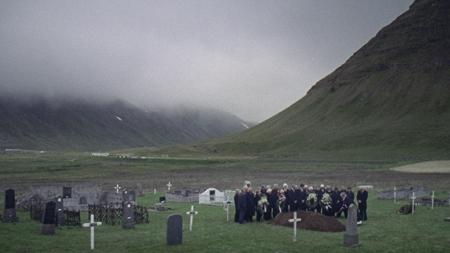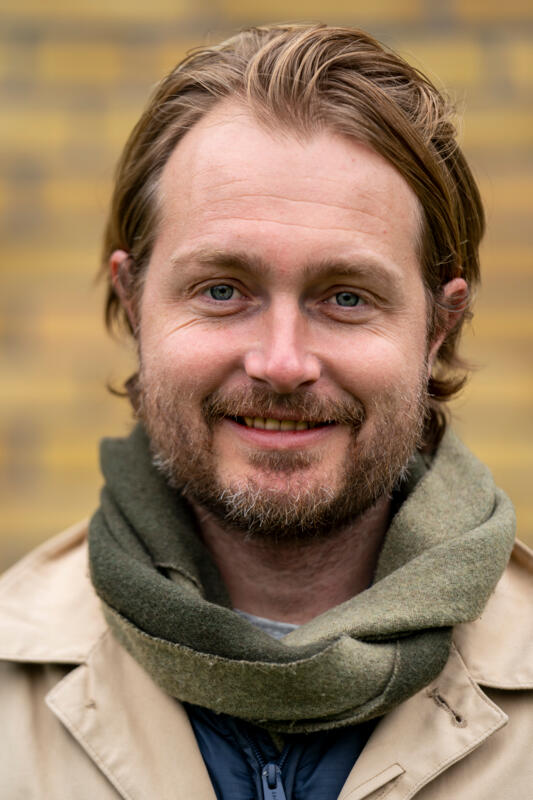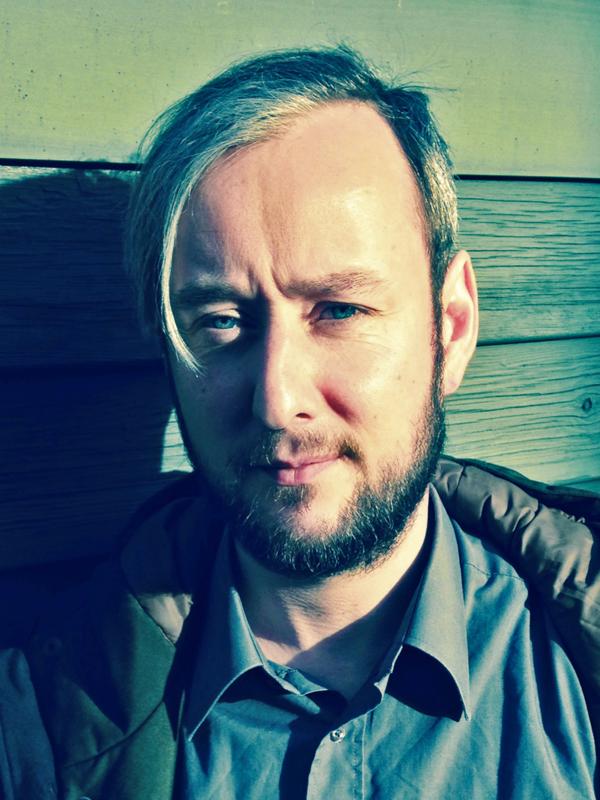Driving rain and hail in the middle of summer. Fog so thick you couldn't see more than a few feet. Floods and mudslides with giant boulders blocking the roads. Even an erupting volcano. These are just a few of the calamities that befell the production of Rúnar Rúnarsson's Sparrows in Iceland last summer and tested producer Mikkel Jersin’s ability to keep a cool head. The film will open later in the year.
"It was like being at the end of the world. The sun never sets and after a while you get this jetlagged feeling, because even in a blacked-out room you can hear birds singing."
"I have made a lot of films, but this time it really felt like I was being pushed out of the nest and had to learn how to fly," the 34-year-old producer says about the shoot set in and around the hamlet of Flateyri on the northwest coast of Iceland. Sparrows is the story of Ari, 16, from Reykjavik who is sent back to live with his father in the remote western fjords of Iceland. While Rúnarsson may be used to Icelandic conditions, it was another story for Jersin and the other Danes.
"Every film production has things go wrong, of course, but we were continuously beset by all these dramatic events that were completely off the charts for a Danish film crew. I was amazed by how much you are at nature’s mercy there."
Summer in Iceland is brief and the crew was there during the window when it's just possible to shoot a film before autumn comes. Even so, the fog was often so thick that planes between Reykjavik and the tiny airport on the northwest coast were grounded. Instead, Jersin and other crew members had to make the 12-hour drive between Reykjavik and Flateyri, and back, when required.
A Reed Bending in the Wind
The midnight sun hanging over the former whaling station where the shoot was located made it hard for the Danes to get a good night's sleep.
"It was like being at the end of the world. The sun never sets and after a while you get this jetlagged feeling, because even in a blacked-out room you can hear birds singing and it feels like daytime around the clock," Jersin says.
Then Bardarbunga, a giant volcano, blew up. The biggest volcanic eruption in Iceland in more than 60 years, it threatened to unleash an ash cloud like the one that rose from Iceland a few years ago and paralysed European air traffic for weeks. Jersin was fielding calls from British agents fretting that the Croatian star Rade Serbedzija, who was being flown in from the set of Downton Abbey, would be stranded in Iceland. Serbedzija plays an elderly man at the fish factory who takes Ari under his wings.

Moreover, Sparrows was shot on 16mm film that had to be rushed to Stockholm to be developed and flown back again, so Rúnarsson and his editor, Jacob Schulsinger, could watch the footage. Jersin calls it "a logistical nightmare," not least because the insurance policy only covered the production if the raw film got to the lab within 72 hours of being exposed.
Jersin wasn't panicking yet, but more unforeseen events were to come. Shortly before the shoot was to start, the film's funding was hit by wildly fluctuating exchange rates, costing the production a small fortune. Jersin had quit smoking, but now he was lighting up again.
"I remember smoking a cigarette, thinking: Damn, this is bad!" But still he didn't say anything to his director.
"As a producer, you have to be a bulwark for the director. He has to have the space to keep his creative focus and in this kind of situation should be involved only as a last resort before the problem is solved," says Jersin, who likens the job of producer to a reed bending in the wind.
"Once the storm blows over, you straighten up again." He plugged the hole in the financing and only then did he cue in Rúnarsson. Jersin had learned how to fly.


